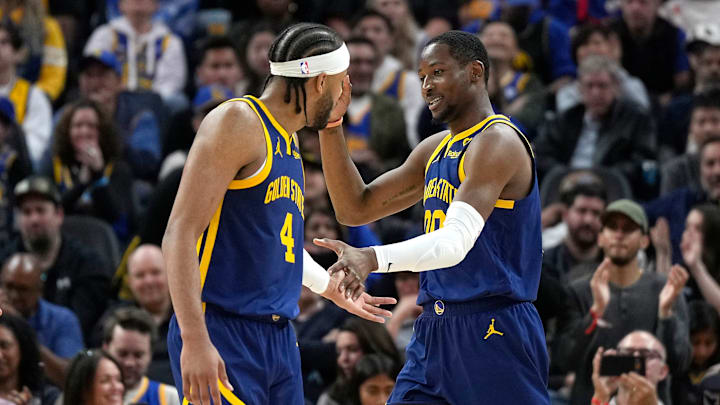Contract extensions for 2021 lottery picks Jonathan Kuminga and Moses Moody are the overarching talking point for the Golden State Warriors just over two weeks out from the start of training camp in Hawaii.
The Warriors have little in the way of business to complete before the start of the season, outside deals for the young pair who will automatically become restricted free agents next summer if they can't agree to an extension by October 21.
Trade flexibility remains a notable element in the Golden State Warriors extension talks with their 2021 lottery picks
According to Anthony Slater of the Athletic on Thursday, "there hasn’t been significant progress toward a deal in either case." Slater also noted that Golden State are currently unwilling to offer Kuminga the maximum five-year, $224 million he's eligible for, making for an intriguing period to see whether an agreement can be reached.
Another point outlined by Slater was the poison pill scenario that would accompany new deals for Kuminga and Moody, thus significantly inhibiting the Warriors trade flexibility prior to February's mid-season deadline.
Poison pill contracts refer to players who get extensions ahead of their fourth season. For example, if the Warriors had wanted to trade Jordan Poole mid-way through his fourth season (rather than last offseason), the outgoing salary would have been that of his fourth year -- $3.9 million. However, the incoming salary for his new team would have been the average salary of the fourth year plus the $128 million extension -- approximately $26.4 million.
In other words, it's practically impossible to match salaries and make a trade with a poison pill contract. If the Warriors sign Kuminga and/or Moody to extensions before October 21, they're basically conceding that they're not trade eligible until next offseason.
That's important when you consider both players and their value in a potential trade for a star player. We're only two months removed from Golden State reportedly offering Moody in their offer for Lauri Markkanen, with both he and Kuminga's futures having been a regular source of speculation over their first three seasons.
Moody and Kuminga essentially not being trade eligible could be the difference between the Warriors landing a star player or not by February's deadline, and therefore could be the difference between whether the franchise can return to championship contention or not.
Are Golden State willing to take that risk by giving the pair contract extensions? That's the question that will remain fascinating until such time as deals are agreed upon, or the October 21 deadline passes with no movement.
